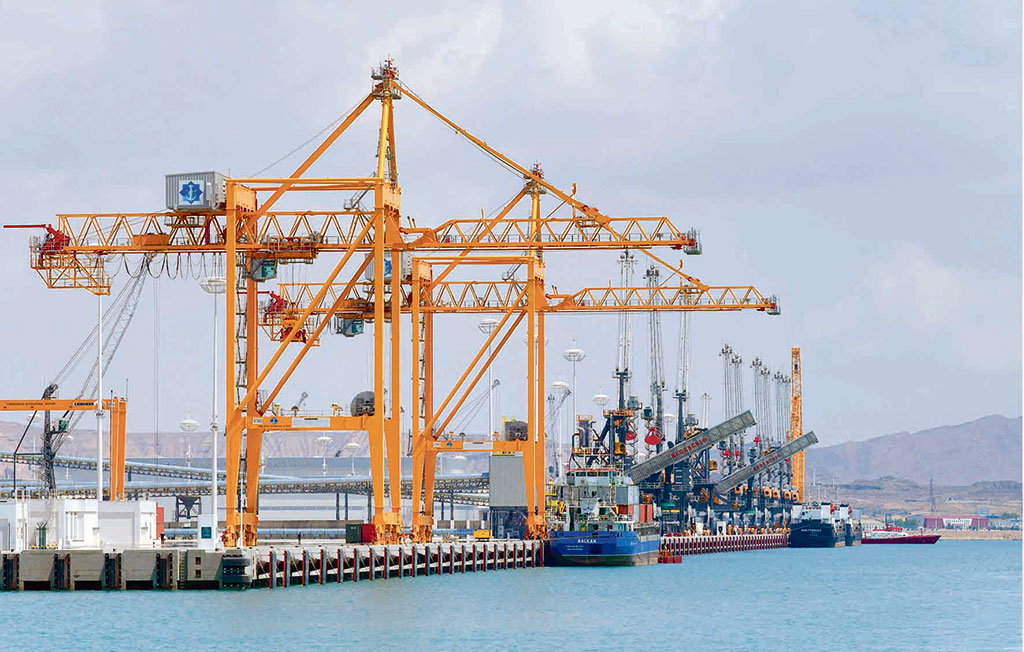Russia’s shipbuilding industry corporation USC said on Thursday that its enterprises would help Turkmenistan build ships to modernize the Central Asian country’s fleet.
As part of an online meeting that took place on August 13, Russia’s United Shipbuilding Corporation and Turkmenistan-based Balkan shipyard agreed on basic conditions for industrial cooperation between shipbuilders in the two countries. Officials from both sides are now one step closer to signing a memorandum of understanding, according to a statement issued by the Saint Petersburg City Administration.
“After the signing of the document, work will begin on the supply of ships to Turkmenistan, which will be assembled using the shipbuilding facilities of St. Petersburg,” the statement read.
There is no information yet about what type of ships will be assembled in Russia’s second-largest city.
Established in 2007, the United Shipbuilding Corporation is ranked the largest shipbuilding company in Russia with about 40 domestic shipyards, design offices and ship repair yards. USC’s enterprises are active in all major port and transportation hubs of the country — from Kaliningrad to Khabarovsk and from Murmansk to Astrakhan. Along with implementing state defense order for the Russian Navy, the company is engaged in the construction of a modern fleet for operations at sea, offshore and inland waterways.
St. Petersburg, the Republic of Tatarstan and the Astrakhan region are Turkmenistan’s largest trading partners in Russia. As of the first quarter of 2020, the trade turnover between St. Petersburg and Turkmenistan increased by 78.2 percent compared to the same period last year and amounted to about $2.6 million. Russia’s imports from Turkmenistan rose by 290 percent, amounting to $525,000, according to data compiled by the Saint Petersburg City Administration.
“The growth in [Russia’s] exports [to Turkmenistan] is due to large deliveries of goods such as ships, boats and floating structures,” the statement issued by the city administration said.
Located on the shores of the Caspian Sea, Turkmenistan has long been undertaking efforts to modernize its navy. In 2009, President Gurbanguly Berdimuhamedow approved a six-year state program to create a national naval force and modernize the country’s coast guard. In 2018, the government of Turkmenistan launched the country’s first shipyard, Balkan, which was designed to build up to six naval vessels and carry out maintenance and repair works for 20-30 ships per year.
With an aim to modernize its fleet, Turkmenistan has been partnering with the United States, Turkey, Ukraine and Russia. In 2009, Turkmenistan purchased two Russian-made patrol boats dubbed “Tarantul”. Also, the list of naval vessels purchased from Russia includes two missile corvettes known as “Project 1241” and two patrol boats codenamed “Project 12200”.
Russia has also helped Turkmenistan modernize its merchant navy. Since 2009, six oil tankers have been built at the Russian Krasnoye Sormovo shipyard located in Nizhny Novgorod.
Meanwhile, Turkmenistan announced this week its readiness to cooperate with the Astrakhan region in the realm of shipbuilding, as the country’s consul in Astrakhan, Guych Garayev, met with Igor Babushkin, the governor of Russia’s southern region.
“Now there are negotiations between the Astrakhan shipbuilders and their Turkmen partners on the construction of a series of ships for Turkmenistan,” Garayev said on August 12, adding that his country was also planning to open a logistics center in Astrakhan.
Last September, officials from Russia and Turkmenistan agreed to establish a tourism service via the body of water that separates their borders — the world’s largest lake, the Caspian Sea — by 2020. However, the agreement has yet to be signed.







 Armenian sappers commenced on Monday mine-clearance operations in the territories adjacent to the Saint Mary Church in village of Voskepar (Armenia...
Armenian sappers commenced on Monday mine-clearance operations in the territories adjacent to the Saint Mary Church in village of Voskepar (Armenia...
 Russian Foreign Minister Sergei Lavrov has reasserted that Moscow has no intentions to stop the fighting in Ukraine, even if peace talks commence.
Russian Foreign Minister Sergei Lavrov has reasserted that Moscow has no intentions to stop the fighting in Ukraine, even if peace talks commence.
 Iran and Pakistan have signed eight cooperation documents in various fields, and agreed to strengthen ties to fight terrorism in the region.
Iran and Pakistan have signed eight cooperation documents in various fields, and agreed to strengthen ties to fight terrorism in the region.
 President Aliyev emphasized the critical role of the North-South Transport Corridor in fostering transport cooperation between Azerbaijan and Russi...
President Aliyev emphasized the critical role of the North-South Transport Corridor in fostering transport cooperation between Azerbaijan and Russi...



